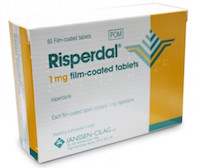
Gynecomastia, or the formation of female breast tissue in human males, can be psychologically devastating, particularly for the young. And, as Risperdal is an antipsychotic that is also used off-label in the treatment of autism, the failure to acknowledge the risks of inflicting additional psychological harm on those already engaged in their own mental health struggles seems to add an additional level of cruelty to an already atrocious behavior.
In an effort to demonstrate their level of disgust with J&J’s actions, a jury awarded Murray $8 billion in punitive damages. “A jury, if it’s outrageous enough conduct,” says University of Richmond School of Law professor Carl Tobias, “will award a big number and let the lawyers and judges work it out.” That work has concluded as Philadelphia Court of Common Pleas judge Kenneth J. Powell Jr. awarded Murray just $6.8 million of the jury’s $8 billion verdict.
Janssen still plans an appeal claiming that it was “precluded from presenting a meaningful defense due to the court’s exclusion of key evidence.” Murray’s lawyer plans his own appeal of the judge’s decision and says that the verdict was “wrong” and “provides essentially no punishment for the worst of the worst of corporate misconduct.”
Mr. Murray’s legal battle over his condition, it would seem, is far from over.
